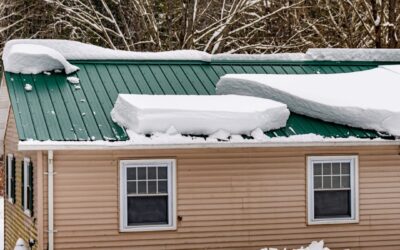Today’s residential homeowners and commercial building owners have more roofing options readily available than ever before. And, yet, even with all the different roofing materials, many people still choose traditional asphalt shingles for their home.
Asphalt shingles offer some distinct advantages, including the ease of repair and affordability. The more you know about these common roof components, the more effectively you can respond to problems and better maintain the integrity of your roof. See these frequently asked questions.
What Goes Into the Structure of an Asphalt Roof Shingle?
Roof shingles come in various materials, including natural wood, synthetic composites, clay tile, slate, metal, and of course traditional asphalt. Asphalt shingles may appear simple in nature, but they actually feature a sophisticated multi-layered design that strengthens them and helps them protect your roof against weather elements.
The asphalt that gives these shingles their name actually sits only on their outward-facing surface, topped by a distribution of fine granules. The asphalt itself gets mixed with other materials such as styrene to make them more durable, while the actual asphalt provides water resistance. Beneath the asphalt lies a tough fiberglass mat.
How Do Asphalt Shingles Sustain Damage?
Despite all the toughness built into them, even the finest asphalt shingles can sustain damage. This damage may occur all at once in a devastating storm or fire, or it may develop naturally after years of wear and tear.
Extreme temperatures can damage asphalt shingles in various ways. For instance, temperature swings, accompanied by dry air and windy weather, can cause the shingles to crack. Poor attic insulation can allow heat to exit into the roof, causing a form of damage known as shingle blazing.
Should You Worry About Granule Loss On Your Asphalt Shingles?
Is your roof experiencing granule loss? These gritty deposits that collect in your gutters or downspout are crucial for protecting your asphalt shingles from the weather elements. Don’t underestimate the significance of granule loss, as it can affect both the appearance and functionality of your roof.
If you notice granule loss on your asphalt shingles, it’s time to call an expert to replace them. The granule coating on asphalt shingles provides protection against UV radiation from the sun and adds fire resistance, as well as their distinctive color.
What Can Damaged or Missing Asphalt Shingles Do to Your Roof?
Asphalt shingle damage can leave your roof vulnerable to more extensive damage. If gaps form between shingles or parts of the roof are left exposed to the elements, water can leak down into the wooden parts of the roof. If this happens, your roof is susceptible to rot, pest infestations, and structural weakness. You should get any obvious roof problem checked immediately.
Unfortunately, you can’t always evaluate the health of your asphalt roof simply by looking for shingle damage. For this reason, you should schedule periodic roof evaluations from a roofing professional who can look for these specific warning signs.
When Should You Replace Your Asphalt Shingle Roof?
It depends on the type of asphalt roof shingles that are installed on your home. If you’re using three-tab asphalt shingles, they need to be replaced every 15-20 years. Architectural shingles last considerably longer. Many new roofing systems now come with 30 plus year warranties.
Unfortunately, that doesn’t mean that your shingles will last 30 years. It just means that your roofing warranty may cover some or all repair costs during that time.
Read our article on roof warranties for more information on dealing with roof warranties and guarantees.
In most cases where individual asphalt shingles (or small groups of shingles) sustain damage or come loose, your roofing professional can simply replace the affected shingles. First, however, this professional will examine the underlayment and other structural roof elements to see whether the roof needs more extensive repairs.
A severely damaged asphalt-shingle roof may require replacement. However, even if your roof seems to hold up year after year, you should keep in mind that asphalt shingles don’t usually last more than 30 years. If your roof has passed its 30th birthday, your roofer may advise you to go ahead and replace it. Learn more about the lifespan of roofs, including asphalt.
How Do You Replace Asphalt Roof Shingles?
Replacing an asphalt roof is a fairly straightforward process that involves removing the old roof. Then the roofing company will inspect the roof’s decking (the plywood that covers the roof) and replace any bad spots. Then, the drip edge will be installed, followed by an underlayment that provides a waterproof barrier. A special leak barrier may also be installed in certain areas that are prone to leakage. Finally, the shingles themselves are applied.
How Do You Clean an Asphalt Shingle Roof?
There are many cleaning formulas that are recommended on the internet, from a 50/50 bleach and water mix, to hydrogen peroxide, to gain laundry detergent. The best method, though, is to use a specialized asphalt roof cleaner.
Whatever you use to clean your roof, do NOT power wash it. Power washing can damage your asphalt shingles.
All About Asphalt Shingle Roofs
Volpe Enterprises, Inc., has all your answers when it comes to asphalt shingles and other popular roofing materials. If you need to get an asphalt-shingle roof evaluated, repaired, or replaced, contact us today to request a free estimate.
Is your roof damaged? It would be best if you acted quickly. Otherwise, your home belongings could suffer severe structural damage. Learn more about a roof replacement.





